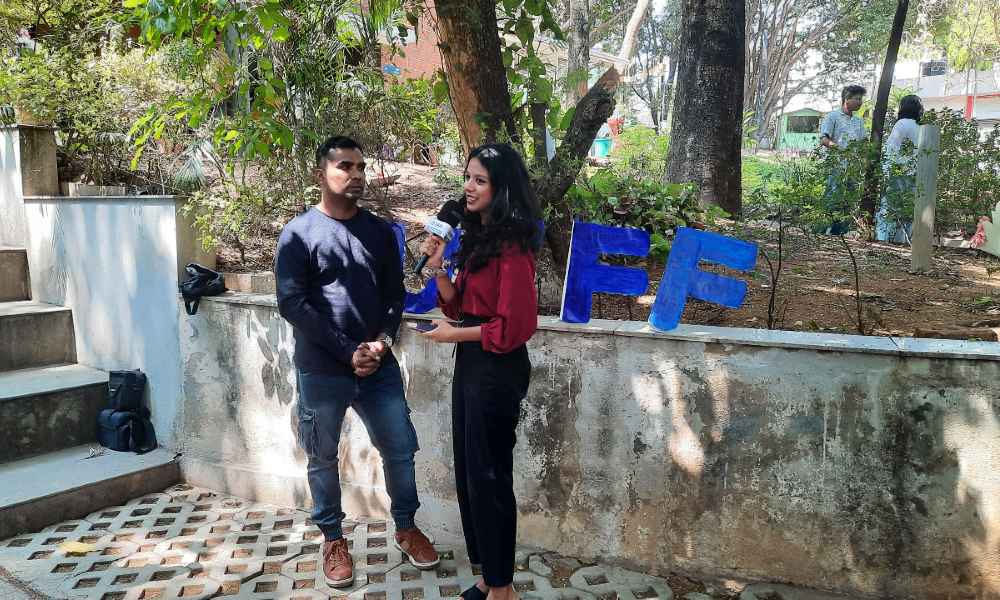Short film makers say that they need support from universities and film and theater organisations.
The Jain University Short Film Festival, will be held every year from 2024, said Santhosh Murthy, Asst. Professor, Department of Journalism and Mass Communication, Jain University Central Campus.
The first edition of the short film festival was held today at Suchitra Cinema and Cultural Academy, Banashankari Stage ll. Kannada film screenwriter and director, Manju Swaraj, inaugurated the event.
The short film festival was held in two categories – professional category and student category. The festival had a total prize money of Rs. 25,000. Champa Shetty, film director and B.S. Kemparaju, film editor, were the judges for the event. The short film screenings were held in two screens. Murthy said, “We received 75 entries for the festival. Out of which 30 short films were screened today. The remaining were rejected due to non-compliance to the rules.”
Murthy said, “This was a dream project for our University. We had been preparing and working hard for this to happen. “
He said that the preparation for the short film festival was kick started in January with a 48-hour filmmaking challenge organised by the Cinemates club of the University.
Gowtham Chandra, Organising Head of the short film festival, said that his team wanted the event to be a platform for aspiring filmmakers to showcase their talent. “Initially, we were really nervous about how the event would go. We haven’t held an event like this before and were worried if we could get any entries at all. Now we are really happy as we got 75 entries from across the country.”

Kannada film screenwriter and director Manju Swaraj, inaugurated the event.
Louis Bernard, Head of Department, Theatre and Film Studies at Woodstock School, Uttarakhand, said that film festivals organized by educational institutions provide students with a practical learning experience in event management, marketing and film curation. He added that it can bridge the gap between academia and film industry.
Sreehari, a student from St. Joseph University, who participated in the student category, said, “This was a big opportunity for student creators like me. My team had to overcome several barriers like lack of budget and absence of professional working space. We are glad that we made it happen.”
He suggested that universities and colleges should allocate fund and technical support to students who can excel in creating content like this.
Chandan Kumar, director of a short film screened in the professional category, said, “If short film makers get sponsorship from film and theatre organisations, that will help improve the quality of the content produced.” He added that there is no proper market for short films in Kannada and that could be solved if big production houses come forward to streamline Kannada short films.
Lokesh Lingaraj, cinematographer, said, “Making a short film in itself is an expensive endeavour. Sometimes, to screen those films, we have to pay to the short film organisers. So, free short film festivals like this are a great platform for short film makers.”
Bernard said that short film festivals offer a multitude of benefits to both film makers and organizers.
He said that, for film makers, short film festivals provide a platform for exposure and recognition. He added that it is also an opportunity for networking and a chance to win awards, which can significantly boost a film maker’s career.
“Successful film festivals enhance the prestige of the organizing body, attracting more sponsors and high-quality submissions in subsequent editions,” he said.
He added that short film festivals in India are on a rise, fueled by the digital revolution, accessibility of film making technology and a growing interest in the people. However, he added that financial constraints and the pandemic have affected the film festivals in India, highlighting its vulnerability to external shocks.




